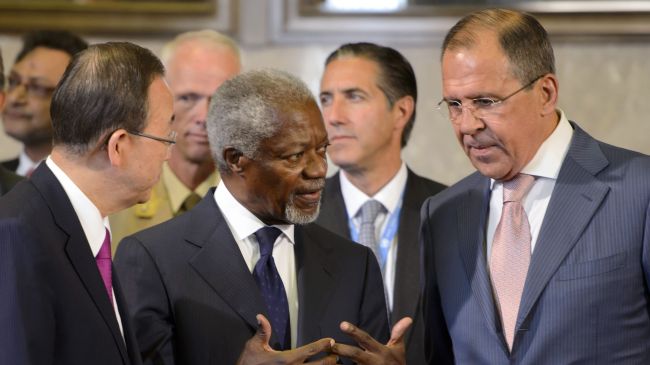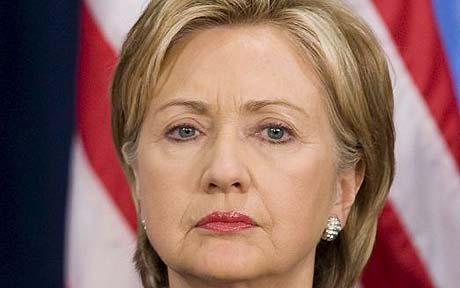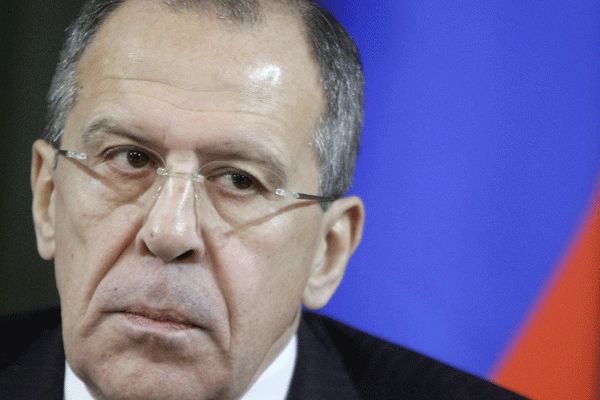World powers on Saturday reached agreement on a transitional governing body in Syria that could include members of the current Syrian government and the opposition.
World powers on Saturday reached agreement on a transitional governing body in Syria that could include members of the current Syrian government and the opposition. 
The transitional government in Syria “could include members of the present government and the opposition and other groups, and shall be formed on the basis of mutual consent,” UN- Arab League envoy to Syria Kofi Annan said in a press conference following the meeting.
In addition to Annan, the foreign ministers of Russia, China, Britain, France, Turkey, Qatar, Kuwait, and Iraq, Secretary General Ban Ki-moon, Arab League Secretary General Nabil El-Araby, and the secretary of state of the United States attended the meeting at the United Nations office in Geneva.
The plan “makes it clear that we have provided guidelines and principles to assist the Syrian parties as they move ahead with the transition,” Annan stated.
However the UN envoy doubted that "Syrians... would select people with blood on their hands to lead them."
As the west was still calling for President Bashar Assad to cede power, Russia and China insisted that Syrians must decide how the transition should be carried out rather than allow others to dictate their fate.
The two countries, signed up to the final agreement that did not make any explicit call for Assad to leave.
"ASSAD STILL HAVE TO GO”
Despite Annan’s remarks, US Secretary of State Hillary Clinton made it clear that Washington did not see a “role for Assad in the transition.”
"Assad will still have to go. He will never pass the mutual consent test," she said.
French Foreign Minister Laurent Fabius took the same stance, saying, "It's clear that Assad must stand down".
"No one can imagine for a moment that Assad will feature in the (new) government, any more than anyone thinks it possible for him to establish a neutral environment" required by the agreement, he said, adding that the transition government "will exclude murderers."
“SYRIANS TO DECIDE THEIR DESTINY”
Russian Foreign Minister Sergei Lavrov stressed his country’s stances on the crisis on Syria, saying Syrians were the people who would decide the fate of their country.
Lavrov said that Moscow had convinced other parties to accept that Syrians should make the decision on any transition and that no party should be excluded from the process.
"How exactly the work on a transition to a new stage is conducted will be decided by the Syrians themselves," he said, adding, "There are no demands to exclude from this process any one group. This aspect had been present in many of our partners' proposals. We have convinced them that this is unacceptable.”
Meanwhile, Chinese Foreign Minister Yang Jiechi also emphasized the need for an all-Syrian solution to the crisis, noting that "outsiders cannot make decisions for the Syrian people."